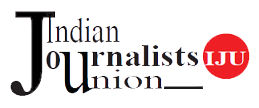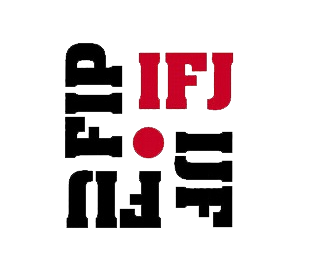- Geetartha Pathak
Former US President Franklin D Roosevelt was an experienced statesman who understood the nuances of democracy. He said, "Democracy cannot succeed unless those who express their choice are prepared to choose wisely. The real safeguard of democracy, therefore, is education."
A democracy can overcome the challenges it faces if people collectively resist the forces that undermine it. Divisive forces are once again raising their heads by taking advantage of the new media. Recently, two photographs of a naked tribal girl were published on the Facebook page of uttar Pradesh Chief Minister Adityanath, revealing a new dimension of spreading smear campaign against rival political forces.
Laxmi Oraon was stripped and assaulted brutally by a mob on the streets of Guwahati during a protest rally in 2007. Laxmi, then a 19-year-old girl, had come from Sonitpur district to participate in a demonstration by Adivasis seeking ST status. The ten-year-old photograph was posted on the Facebook page of the uP Chief Minister depicting her as a Hindu woman who was stripped by Congress workers of West Bengal.
This is a clear case of manufacturing fake news by forgery to malign political rivals. It is natural that the BJP as a rival of the Congress will use all opportunities to expose its misdeeds. The Congress is no different.
Like war, a political fight also has some rules, which everybody should follow. Criticism cannot be based on falsehood. With increasing penetration of internet and social media, the rightist forces are abusing these technological tools in an organised way to further their divisive agenda and gag the dissenting voices. Forgetting the trauma of being stripped in public, Laxmi Oraon is now married and settled in her village. By publishing her naked photograph on the Facebook page of a Chief Minister, the admin of the FB page has done great injustice to her.
Intimidating Critics
Broadcast journalist Swati Chaturvedi in her book, 'I am a Troll: Inside the Secret World of the BJP's Digital Army' contends that the BjP is orchestrating online campaigns to intimidate perceived critics of the BjP and its government through its social media cell.
The BJP was the first Indian political party to realise the importance of the power of social media in mobilising public opinion. While Prime Minister Narendra Modi opened his Twitter account in 2009, Congress Vice-President Rahul Gandhi joined the micro blogging site only in 2015. It is also interesting that Narendra Modi personally follows a clutch of Twitter accounts that regularly send out abusive tweets. Some of his Cabinet colleagues have openly endorsed some trolls. Derek O'Brien, a Rajya Sabha MP from West Bengal, has questioned why Modi follows cyber-bullies.
Manufacturing Consent
Professor Emeritus of finance at Wharton School of Business, university of Pennsylvania, a media analyst Edward S Herman and an American linguist, philosopher, cognitive scientist and social critic Noam Chomsky have advanced a propaganda model to explain how propaganda and systemic biases function in mass media.
The model seeks to explain how populations are manipulated and how consent for economic, social, cultural as well as political policies is 'manufactured' in the public mind owing to this propaganda. The theory claims that five general classes of filters determine the kind of news presented in news media - ownership of the media, media's funding sources, sourcing, flak, anti-communism or war on terrorism.
In their 1988 book 'Manufacturing Consent: The Political Economy of the Mass Media', Chomsky and Herman presented the propaganda model. The model views private media as businesses interested in the sale of a product - readers and audiences - to other businesses (advertisers) rather than that of quality news to the public. The authors of the book took into account only the print and electronic media to establish the propaganda model as the internet came much later. However, the propaganda model as envisaged by Chomsky and Herman has proved to be more relevant than the conventional print and electronic media.
Muzzling Voices
In order to regulate social media content, new innovative filters are being invented by vested socio-political interests. Trolling and blocking are two such filters in the process of manipulating propaganda or manufacturing news. Instead of taking advantage of the advancement of science and technology for increasing production quality and making citizens' lives comfortable, the present ruling classes are using it for advancing their divisive political agenda. Now terrorists, criminals and autocratic regimes are abusing technology and science more and more for their activities.
In India, journalists are being targeted for criticising the ruling party and the government. A police complaint was filed against a journalist and author of 'Gujarat Files: Anatomy of a Cover up' for simply commenting on Twitter on the presidential candidate of BjP. The same day another journalist Basit Malik was assaulted when he was investigating alleged demolition of a mosque in Sonia Vihar, Delhi, by some supporters of the BJP only because he was a Muslim. These are nothing but ploys to muzzle the voices of those in the media, which do not toe the official line. Filing police complaints against journalists and dragging them to court is another type of filter in manipulating news by despotic regimes.
To counter propaganda and news manufacturing by using news filter, the democratic forces of the country should face the challenge without being provoked by leveraging various media platforms - .particularly the social media, which is comparatively difficult to control by political powers.



